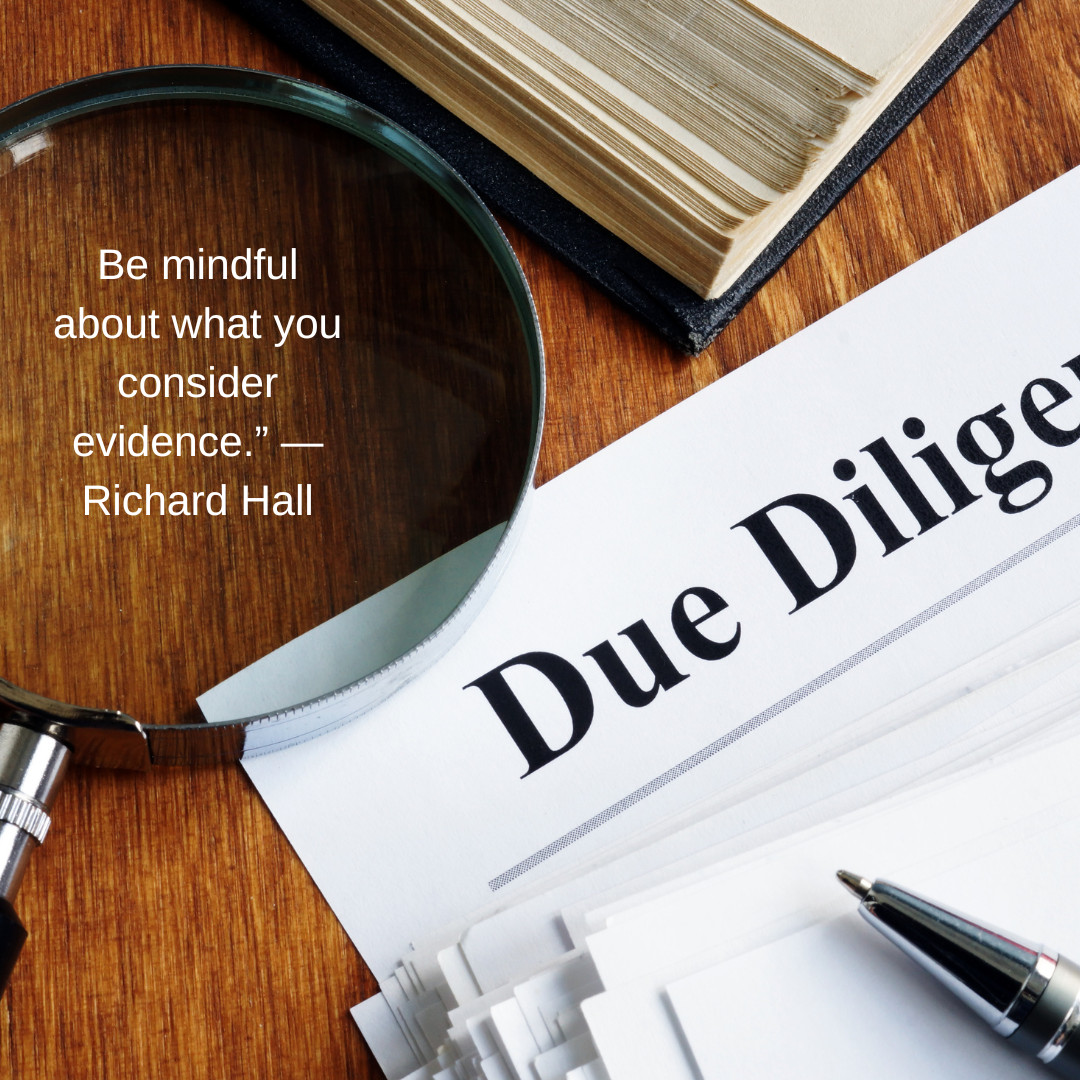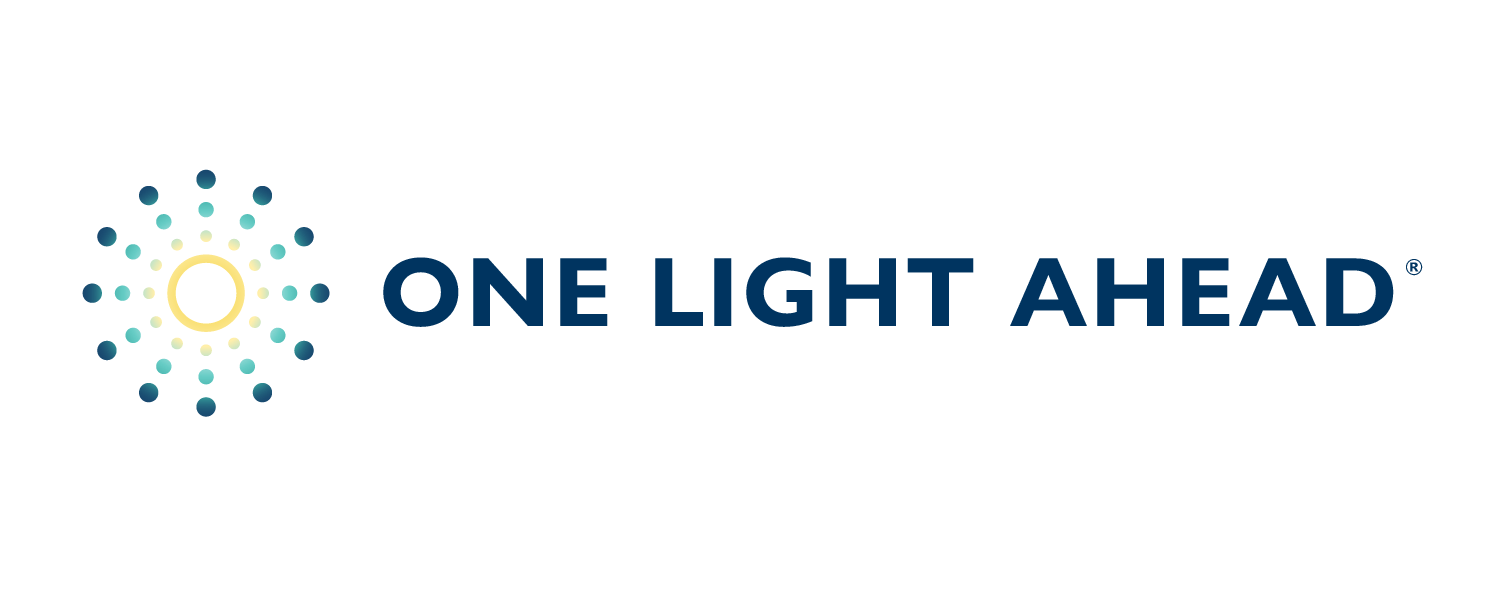
Introduction: Why Leaders Need Better Evidence
Leaders make decisions every day—about their teams, clients, strategies, and even their own personal growth. But here’s the problem: most of us tend to collect “evidence” that only supports what we already believe.
It feels safe. It feels validating. But it often leads to blind spots, poor choices, and strained relationships.
In the final session of our free Q&A series, leadership coach April Ballestero sat down with attorney Richard Hall to explore how leaders can move beyond assumptions and gather evidence with integrity. Richard, the founder of Bottom Line Lawyers PC, brought his legal expertise, mediation experience, and leadership insight to the conversation.
What unfolded was a rich discussion about confirmation bias, subjective vs. objective evidence, psychological safety, and the art of reaching alignment.
Leadership Principle: Gathering Evidence
Richard framed the concept of evidence in three levels—a framework that instantly resonates with both leaders and professionals:
- Confirmation Evidence
This is the easiest—and riskiest—kind. It’s the evidence you seek only to confirm what you already believe. For example: “I knew they didn’t like me. See, they didn’t return my email.” It feels like proof, but it’s really just bias dressed up as fact. - Intellectual Integrity Evidence
At this level, leaders pause to ask: “Do I have enough information here to treat this as fact for my purposes?” It’s not about perfect certainty, but about honest, sufficient facts that can guide decisions. - Legal Evidence
This is the strictest standard—what’s admissible in court. It requires verifiable, documented proof. Leaders don’t need this level for every decision, but the principle reminds us: not all “evidence” is equal.
“Be mindful about what you consider evidence.” — Richard Hall
Most of us live in Level 1. Great leaders aim for Level 2—and occasionally lean into Level 3 when accountability and risk demand it.
Coaching Moment: Testing Our Stories
April connected Richard’s framework back to her book Slaying the Onion. Human beings are natural storytellers—we interpret interactions, weave narratives about others, and then go looking for proof to validate them.
But stories aren’t always true. And even when they are partly true, they’re often incomplete.
The coaching challenge: Instead of gathering evidence to prove your story, gather evidence that could test—or even disprove—it.
- Story: “They didn’t respond because they don’t like me.”
Better Evidence: Ask, “What could improve our next interaction?” - Story: “The client seemed happy.”
Better Evidence: Ask, “What specifically worked? What didn’t? What would you change?”
This shift moves leaders from assumption to awareness, from ego to curiosity.
Pro tip: Avoid “why” questions, which often trigger defensiveness. Instead, use “what” questions: “What led to that choice? What would help next time?”
Subjective vs. Objective: Balancing Feelings and Facts
Richard shared a powerful distinction:
- Subjective Evidence: “That felt like a good meeting.”
- Objective Evidence: “We completed four of five deliverables and earned a 9/10 satisfaction score.”
Subjective evidence matters—it tells us how people feel. But it can’t be the whole story. Leaders need objective measures to confirm progress, spot gaps, and build trust.
“Warm fuzzies are wonderful; they’re just not evidence.” — Richard Hall
In practice, this means moving beyond casual feedback to structured feedback loops, metrics, and accountability systems.
Avoiding the Trap of Confirmation Bias
Confirmation bias—the tendency to only see what supports our beliefs—shows up everywhere: in business strategy, in team dynamics, in client conversations.
Richard’s challenge: actively test your beliefs.
Ask yourself, “How could I disprove this?”
- Think a client is upset? Test it by asking for feedback.
- Think a team member isn’t motivated? Test it by exploring what support they need.
- Think your strategy is working? Test it by checking the metrics, not just your gut.
This isn’t about doubting everything. It’s about strengthening your confidence by making sure your beliefs are grounded in real, honest evidence.
Mediation & The Meeting of the Minds
Richard brought his mediation experience into the conversation, offering a refreshing perspective on alignment:
“A good settlement is when all parties walk away equally unhappy.”
It sounds harsh, but the point is clear: compromise means no one gets everything, but everyone gets enough to move forward.
Mediators achieve this by showing both sides the weaknesses in their own positions. It’s uncomfortable, but it’s also how progress happens.
For leaders, this means:
- Naming your own blind spots.
- Listening deeply to the other side’s perspective.
- Standing in their shoes, even if you don’t change your stance.
When leaders do this, tension eases, respect increases, and alignment becomes possible—even in disagreement.
Evidence of Psychological Safety
April raised an important question: How do we gather evidence of psychological safety in organizations?
Richard’s answer: safety isn’t just a feeling. It requires systems and proof. Policies, risk plans, training, and verification steps all serve as evidence that safety is more than lip service.
For teams, this matters. When people know that leadership doesn’t just say safety is important, but can prove it through consistent systems, trust skyrockets.
Five Practical Moves to Try This Week
- Pre-Mortem Your Belief
Write an assumption. Then list three ways it could be wrong. - Upgrade a Metric
Replace a “feeling” measure with a clear number (NPS, retention, turnaround time). - Close the Feedback Loop
After delivery, ask: What worked? What didn’t? What would you change? - Reframe the Retrospective
Use April’s favorite framework: What’s working? What’s not? What do we do differently and next? - Switch “Why” to “What”
“What led to that?” invites dialogue. “Why did you?” sparks defense.
Favorite Quotes from the Session
- “You see what you want to see.”
- “Test what you believe—try to disprove it.”
- “Warm fuzzies are great, but they’re not evidence.”
- “Understanding their perspective brings down the temperature in the room.”
Reflection Prompts for Leaders
- Belief Check: What’s one assumption you’re holding right now? What evidence would disprove it?
- Safety Signal: What system or practice could you document this week that demonstrates psychological safety?
- Metric Upgrade: Which outcome are you “feeling” that needs a measurable?
- Better Questions: Where can you replace a “why” with a “what” in your next conversation?
Guest Spotlight: Richard Hall
Richard Hall is the founder of Bottom Line Lawyers PC (www.bottomlinelawyers.com). He brings a rare blend of legal expertise and practical creativity—melding technology, “outside-the-box” strategies, and a collaborative style to create innovative client solutions. A strong supporter of veterans, his firm focuses on:
- Tax resolution
- Estate planning
- Veteran benefits analysis
- Business formation
- Bankruptcy
Closing Thought: From Assumptions to Evidence
When leaders rely on assumptions, they risk making decisions that feel good in the moment but crumble under pressure. When they ground their choices in honest evidence, they create clarity, safety, and trust that ripple across their teams and clients.
As April reminded us: closing one door opens another. The question is, will the next door open by accident—or on purpose, with evidence behind it?
🎥 Watch the full replay here: Click to Watch
Work with April Ballestero
Are you ready to strengthen your team, grow your leadership capacity, or bring these insights to a live audience?
✨ April offers:
- Team & Leadership Coaching — helping organizations build trust, sharpen focus, and lead with integrity.
- Public Speaking & Workshops — delivering powerful, interactive talks on leadership, resilience, and evidence-based growth.
📩 Reach out today to explore how April can support your next step in leadership: Contact April














